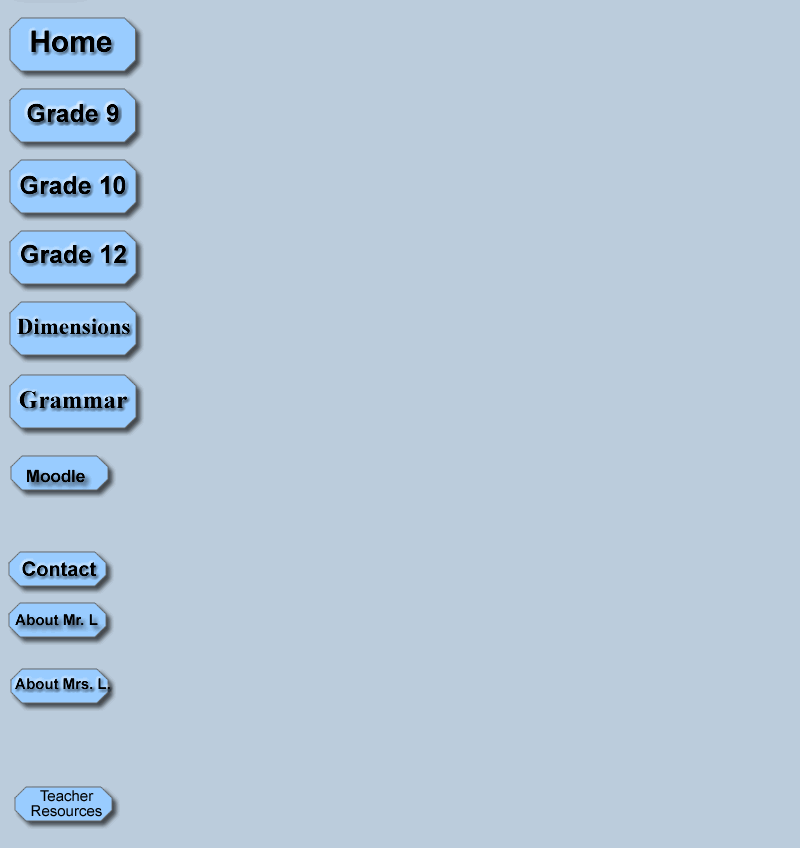Notes on Verb
Definition
Verb is a word that names an action, process, or state.
Hints
- Verbs can always take both –s and –ing endings, although in some rare cases it might not be apparent at first.
For example:
![]() walk walks, walking
walk walks, walking
![]() go goes, going
go goes, going
![]() think thinks, thinking
think thinks, thinking
- All verbs can take an auxiliary (helping) verb:
Note: Auxiliary verbs include have, be, do, will, and must.
![]() walk will walk
walk will walk
![]() go have gone
go have gone
![]() think have thought
think have thought
- Verbs change tense.
When trying to figure out if a word is a verb or not, do the yesterday, right now, and tomorrow test. Let your natural ability to change tense help you determine if a word is a verb or not.
![]() walk yesterday I walked, right now I walk, and tomorrow I will walk.
walk yesterday I walked, right now I walk, and tomorrow I will walk.
![]() go yesterday I went, right now I go, and tomorrow I will go.
go yesterday I went, right now I go, and tomorrow I will go.
![]() think yesterday I thought, right now I think, and tomorrow I will think.
think yesterday I thought, right now I think, and tomorrow I will think.
Note: this hint is especially useful when you need to find the main verb in a sentence.
For example:
Mike ponders what he might do now that he was fired.
What is the main verb?
- Yesterday, Mike pondered what he might do.
- Right now, Mike ponders what he might do.
- Tomorrow, Mike will ponder what he might do.
Explanation: the word ponder is the word I need to change tense for the sentence to sound right; therefore, ponder is the sentence’s main verb.
Types of Verbs
Action verb: expresses a physical (e.g., walk) or mental (e.g., think) action.
Linking verb: links the subject to its complement.
**The most common linking verb is is. To be can be conjugated into is, was, were, am. These are all linking verbs. Other linking verbs are appear, look, sound, taste.
Hint: to test whether a verb is a linking verb or an action verb, replace it with the word is, am, or are.
![]()
![]() 1. The music sounds great. The music is great. Sounds = linking verb
1. The music sounds great. The music is great. Sounds = linking verb
![]()
![]() 2. The chief sounded the alarm The chief is the alarm. Sound = action verb
2. The chief sounded the alarm The chief is the alarm. Sound = action verb
In sentence 1, replacing sounds with is keeps the same meaning. In sentence 2, when we replace sounded with is, the meaning changes.
Examples of Identifying Verbs
The cat meowed at the dog.
The word meow can have –s and –ing put at the end of it: meows and meowing. I can put an auxiliary (helping) verb before it. The cat had meowed. And I can use the tense test: Yesterday, the cat meowed. Right now, the cat meows. Tomorrow, the cat will meow.
Mark thought he was going to lose his mind.
If we run his through our tests, nothing works. His is not a verb. His is a pronoun.
Please come out and see our show.
Here we have a slight problem. Show does pass our tests. However, it also passes our noun test. Which one is it? In this sentence, it is a noun because it is the object of the verb see.
Back to Grammar Exercises



